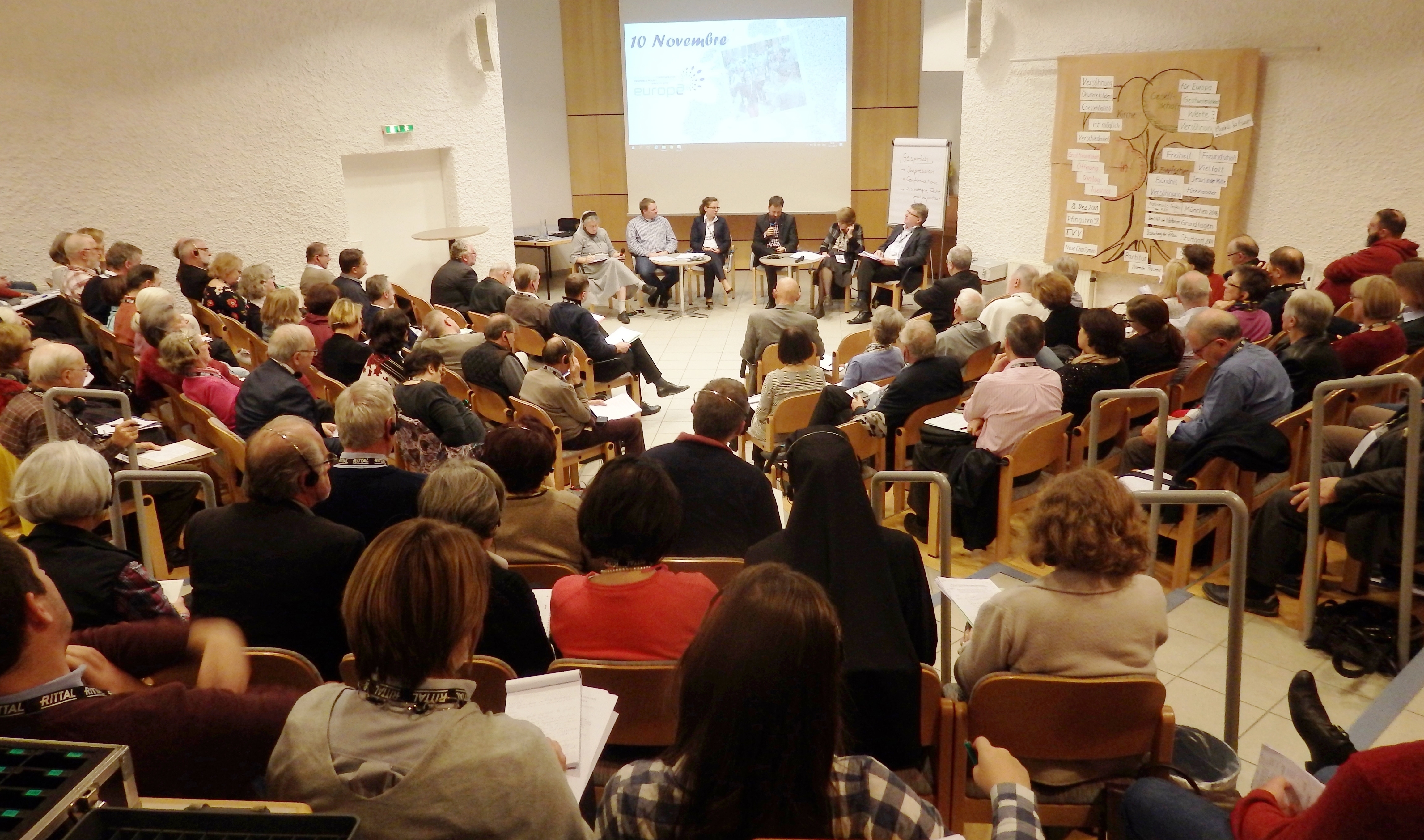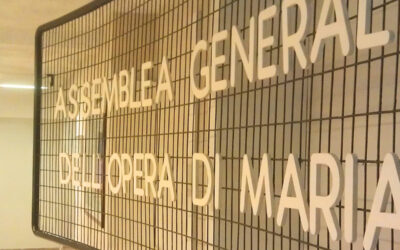 From 9th to 11th November 2017 in Vienna (Austria), the annual conference of ecumenical network Together for Europe (TfE) took place, with 130 participants from 44 Movements, Communities and Associations. Meetings, exchange of ideas, and moments of prayer, characterised the Conference’s program Fr Heinrich Walter (Schoenstatt Movement), Gérard Testard (Efesia, France), Gerhard Pross (YMCA Esslingen) spoke of the eighteen-year history of Together for Europe and its future challenges. “We say Yes to a Europe to which God has entrusted a vocation in the course of history: the togetherness of heaven and earth, of faith and shaping of the world: for heaven and earth meet in the crucified one.” Pál Tóth (Focolare Movement, Hungary), an expert in Communication Science, pointed out some differences between the Eastern/Central European countries and the West of Europe and put forward a daring proposal: “Together for Europe can increasingly become a platform for dialogue, or rather a school of inter-European dialogue.” One of the suggestions which emerged was to dedicate 9th May, when many countries celebrate Europe Day, as an event in which to spread the message of ‘togetherness’ through local actions. www.together4europe.org twitter.com/together4europe
From 9th to 11th November 2017 in Vienna (Austria), the annual conference of ecumenical network Together for Europe (TfE) took place, with 130 participants from 44 Movements, Communities and Associations. Meetings, exchange of ideas, and moments of prayer, characterised the Conference’s program Fr Heinrich Walter (Schoenstatt Movement), Gérard Testard (Efesia, France), Gerhard Pross (YMCA Esslingen) spoke of the eighteen-year history of Together for Europe and its future challenges. “We say Yes to a Europe to which God has entrusted a vocation in the course of history: the togetherness of heaven and earth, of faith and shaping of the world: for heaven and earth meet in the crucified one.” Pál Tóth (Focolare Movement, Hungary), an expert in Communication Science, pointed out some differences between the Eastern/Central European countries and the West of Europe and put forward a daring proposal: “Together for Europe can increasingly become a platform for dialogue, or rather a school of inter-European dialogue.” One of the suggestions which emerged was to dedicate 9th May, when many countries celebrate Europe Day, as an event in which to spread the message of ‘togetherness’ through local actions. www.together4europe.org twitter.com/together4europe
Meeting You is a celebration!
Meeting You is a celebration!




0 Comments